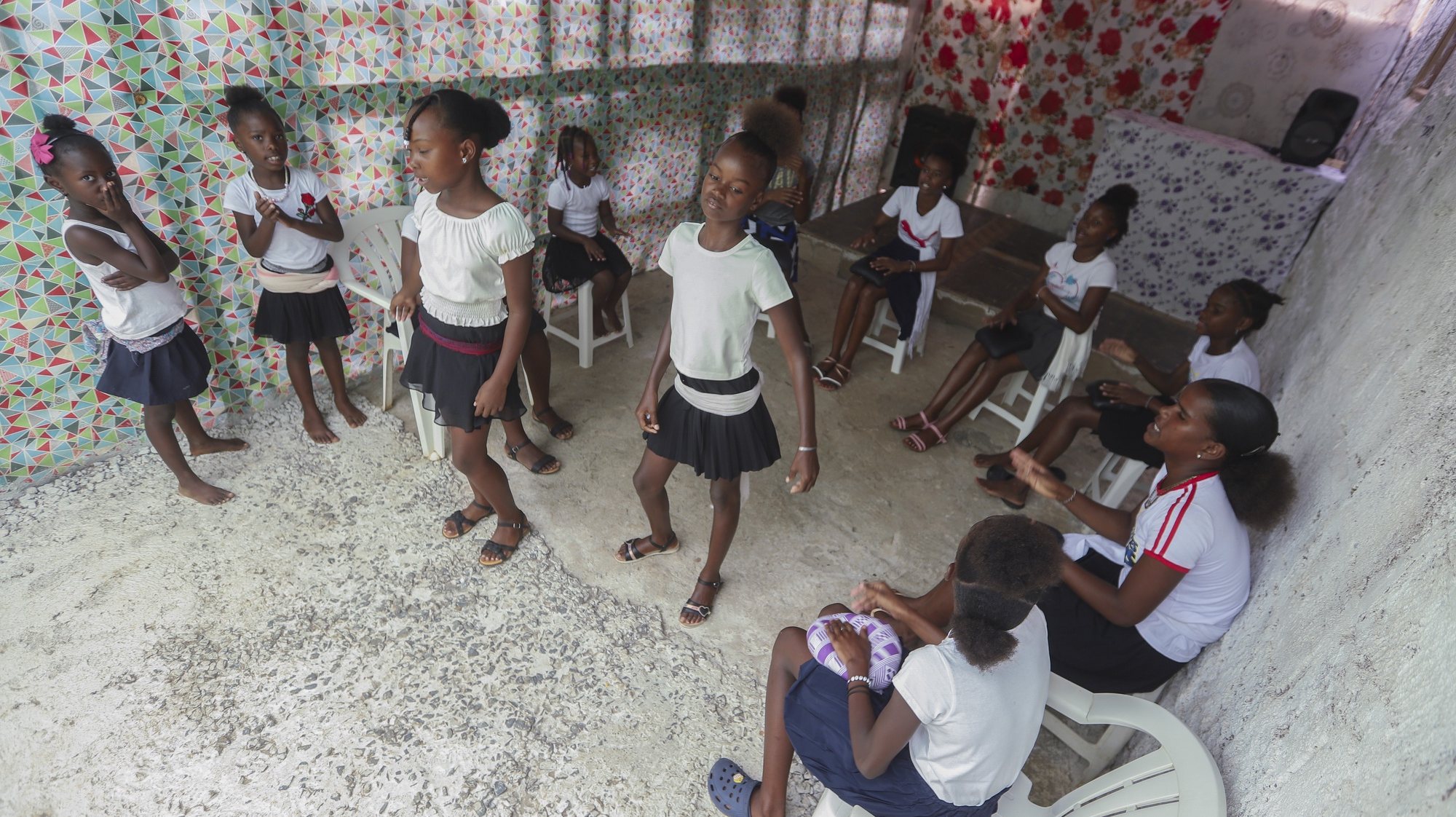With around 14 thousand inhabitants spread across 21 locations, São Domingos has 23 batuco groups, but only the Praia Baixo group is made up of children.
Kellysa is 11 years old and already knows how to make her own ‘txabeta’, the main instrument of the ‘batuco’ musical genre, which she plays with her friends to say no to sexual violence against children in Cape Verde.
“I learned to do [a txabeta] with my mother,” says the Portuguese Kellysa Lopes, who makes a package with two cloths, a plastic bag and improvises the percussion instrument, inherited from the colonial era to avoid the regime’s ban on drums.
She is ready for another rehearsal with her friends, in a wooden shed, covered with a green net, which is one of the meeting and fun points in the town of Praia Baixo, in the municipality of São Domingos, southeast of the island of Santiago.
In the month of July, Batuco Day (July 31) is celebrated, one more reason to go all out.
Kellysa Lopes is one of the 15 members of the group “Criança Flor de Revolucion”, which was born in November, the idea of Ângela Nunes, a 33-year-old fishmonger, who wants to give her own children a voice in drawing. attention to the sexual violence that many suffer in the country.
“We chose this topic because there are many children who are raped,” says the young batucadeira, who believes there are no cases in her area, but is worried when she sees the news “on television.”
According to the report on the situation of justice (from August 2022 to July 2023), cases of sexual crimes registered by the Public Ministry of Cape Verde (635) decreased by 18.2% in the last judicial year and almost the half are still for sexual abuse against children.
This year, the Cape Verdean president, José María Neves, classified sexual violence against minors as one of the “stains” of the country, which he hopes will be “definitively” prohibited.
The Praia Baixo group is made up solely of girls, between eight and 15 years old, from the fishing town, with about 1,400 inhabitants, which is located 30 minutes by car from Praia, the country’s capital.
“They are very committed, they like it, so we decided to create a group,” said the mentor of the initiative, who wants the children to also play and sing the batuco, but “they are embarrassed,” and for now they are just spectators at the rehearsals.
“The batuco is a tradition that I found in Cape Verde and I don’t want it to die,” said the leader, who also has two daughters in the group, and who has already composed eight songs, also appealing to parental responsibility.
Another drummer is 13-year-old Cleireane Fernandes, who does everything in the group: she sings, dances and plays the drum on a leatherette ‘txabeta’, which is normally used to cover sofas and which emits a higher quality sound.
“I feel very happy to be singing with my classmates. I want to continue with the batuco,” promised the girl, who is in 7th grade and, like her friend, wants to be a stewardess or a singer.
With around 14 thousand inhabitants spread across 21 locations, São Domingos has 23 batuco groups, but only the Praia Baixo group is made up of children.
The initiative is applauded by the president of the Municipal Assembly of the municipality, Felismina Moreno, who is from another area (Lora) and who helped the group to mobilize the ‘txabetas’.
“The children are making an invaluable contribution that makes us think big with this group,” he told Lusa.
Two years ago, Cape Verde established July 31 as the National Batuco Day, a secular cultural event that began on the island of Santiago and is performed mainly by women, known as batucadeiras.
It combines percussion, singing and dancing: the woman sings about everyday life, but also about politics and culture, sometimes in a critical tone.
With the use of drums banned during colonial times, women began to drum on pieces of cloth, called “txabeta”, a tradition that still continues.
According to authorities, the archipelago has more than 100 groups – there are others on the island of Maio – with more than 1,000 people, including some men.
Source: Observadora
